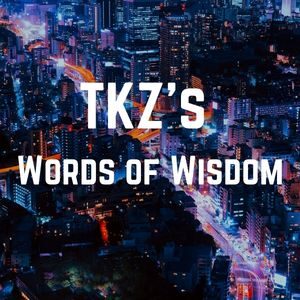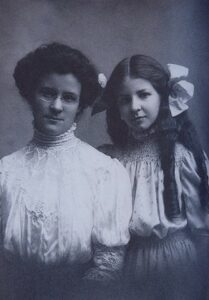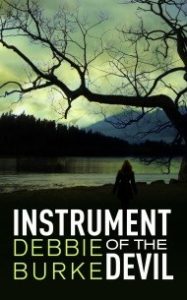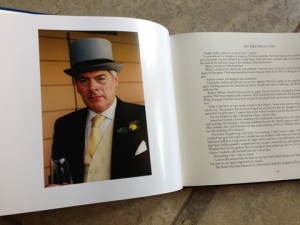Deadlines have helped me publish. They can also stress me out if I’m not careful, as my wonderful, very patient wife can attest, and give me tunnel vision when it comes to priorities. I have a set of new deadlines now for my current work-in-progress, and am hoping to accomplish them without being unduly stressed out and still being able to participate in my various family responsibilities.
Today we take a deep dive into TKZ’s archives. Kathryn Lilley discusses deadline behaviors, Clare Langley-Hawthorne talks about setting and managing deadlines, and John Gilstrap takes us with him as he goes through a deadline crunch. As always, the full articles are date-linked from their respective excerpts.

Then I started thinking about all my other deadline behaviors that could be considered annoying, or even strange, by family and friends. My crazy-writer deadline behaviors include:
The Big Tune-out
It’s not that I deliberately don’t listen to people (Okay, sometimes it is deliberate), but I frequently tune them out. This mostly happens when I’m on a deadline, which means it happens a lot. I might even respond to someone during a conversation, but not remember it later. It’s kind of like brain on auto-pilot.
To Kill a Magpie
When I’m out and about with my husband, I frequently dive for a pen and write detailed notes about our surroundings: the full moon hovering between two palm trees at night, a bag lady sitting in a bus shelter, the timbre of silverware clatter–I take notes about anything I can use later in my writing. Inevitably, I have left my notepad at home, so I drag home notes scribbled on scraps of things: a napkin, a flyer, even the back of a business card. My husband must think he lives with a magpie.
Hair on Fire
It’s predictable: Six weeks before any deadline, I go on a tear. This means that I’m a) Constantly hunched over the laptop, muttering, b) Setting the alarm for 4 a.m., then groaning my way to wakefulness over the course of several Snooze cycles, and c) Bounding out of bed at odd hours of the night to tap out some problem-solving idea that struck me.
I do not talk very much during this time. And when I do, it’s not pleasant.
So there it is. I could go on, but the length of the list is starting to make me feel bad about myself. I would like to feel that I’m not alone in my crazy-writer deadline syndromes. Have you any to share?
Kathryn Lilley—July 27, 2009
Deadlines make you both accountable and responsible. But what does that really mean when you aren’t as yet published? It means you know that in order to achieve your larger goal (writing the novel, getting it published etc.) you need to divide the task into manageable chunks and (here is where it gets tricky) you need to meet the deadlines you impose upon yourself. Otherwise you’re just like the billions of amateur writers whining about how ‘one day’ they will write a book but (insert excuse here…) they never seem to get around to it. In today’s post I want to deal with both publisher as well as personal deadlines.
Publisher Imposed Deadlines:
As John said in his blog post on Friday, these deadlines are pretty much inviolable. If, as the author, you miss these then there is a cascading effect on the whole publication cycle. Worse case scenario the publisher views it as a breach of contract and pulls out of the deal. Best case scenario you inconvenience a whole lot of other people. So if you do need to extend, you’d better have a pretty good excuse.
My rather strict view of deadlines also extends to how you fulfil them. I’ve heard of an author who views the submission date with her publisher with a bit of a shrug – sure, she gets them the manuscript, but she’s not too concerned about making it perfect as she knows the editor will get back to her with comments, so she views the deadline as a necessary evil and continues to work through the book even while waiting for the editor to peruse and comment upon it. I differ on this in that I go into each deal with the belief that, whatever I submit has to be as damn-near-perfect as it possible. To me this is how professionals fulfil their obligations – not with a half-hearted shrug but with a commitment to demonstrating their craft to the highest degree possible.
Of course when it comes to an authors first book, the initial draft manuscript is what was acquired but any amendments to this (based on editorial feedback) should be treated with the same level of professionalism and adherence to deadlines. If an editor doesn’t provide a deadline (which would be highly unusual) then I would request or set one – that way the author remains on track and accountable to a timetable.
So what do you do if you have to seek a deadline extension?
This is where a good agent can act on an author’s behalf to mitigate against this – but the author must still have a genuine excuse for seeking an extension given the potential impact it has on the publisher. When it comes to agents, I would also recommend setting deadlines (for the agent as well as yourself) to ensure there remains a level of responsiveness and accountability that demonstrates an author’s professionalism.
Self-Imposed Deadlines
As a professional writer I like to set myself specific goals for my WIP to keep me on track. Typically I lay out a timetable to complete certain chapters or parts of the books to ensure I don’t face the overwhelming panic of producing a novel. When the tasks ahead are in manageable chunks the path seems far less onerous (or scary). The first thing I do is also set the date I want to get the draft manuscript to my agent and then work backwards from there.
Sometimes I give my agent an initial deadline for the first 5-10 chapters and the proposed plot outline so I can get his read/feedback on the project ahead. Then I always tell him the date I propose getting the complete manuscript to him – it helps establish my own timetable as well as alerting him to my goal (and, I hope, demonstrate I am tackling it in a serious, professional manner).
As a terrible procrastinator, self-imposed deadlines are vital to keeping me on track as a professional writer.
Clare Langley-Hawthorne—March 19, 2012
One constant in my life for more than a decade now has been a September 15 deadline for the next Jonathan Grave book. I plan my entire year around that deadline. A second constant is a July 1 publication date for the book that was submitted the previous September 15. That early July drop date is important because of its proximity to ThrillerFest, and the boost in publicity brought by that. But July is also Gilstrap Beach Vacation Month, so that’s another week gone from the ten weeks leading up to my deadline. (I bring my computer and writing pad to the beach, but if I get 1,000 words written over those seven days, I’m lucky.)
On the far side of my deadline is Joy’s and my wedding anniversary, which almost always includes an exotic trip to somewhere. This year, it was 16 days in Scotland, commencing September 12. That shortened my deadline by three whole days! That means there was no possibility of overshooting the deadline by only a day or two. It was either submit two days early or four weeks late. In my world, we call that “motivation.”
Because I’ve been doing this for so long, I’ve figured out a system that (almost) always works. If I can be at the 200-page mark by the opening of ThrillerFest, I can be at 70,000 words by August 1. Given a 100,000-word manuscript length, that makes August busy but doable. Plus, by then, I’m transitioning to the third act, which for me is the easiest to write. I can usually have a polished first draft done by the first week in September, which leaves me 10 days or so for final revision.
This year, reality bitch-slapped me. ThrillerFest didn’t start until July 13, easily a week later than usual, and from July 19-23, I was on the faculty of the Midwest Writers Conference in Muncie, Indiana. When all was said and done, I’d effectively lost 16 writing days in July.
And September 12 still sat there, immovable.
I hit my 70,000-word milestone on August 8, three days after I taught an all-day seminar at the Smithsonian, and the one day after an all-day charity signing event. Math was beginning to work against me. I needed to write 10,000 words a week for the next three weeks in order to give me the cushion I needed for final revisions. Sounds horrible, but doable.
Then came the long lunch with a grieving friend who reached out because he didn’t want to be alone. And the long overdue birthday dinner with another friend. The un-turn-downable invitation to a luxury suite at the Washington Nationals. Let’s not forget the long-standing three-day commitment to the always-fabulous Creatures Crimes & Creativity Conference from September 8-10.
Tick and Tock were both laughing at me. In fact, they were mocking me.
Oh, and God forbid the book actually pull itself together at 100,000 words. Perish the thought. The final count came in at 112,230 words, and I clicked send for Scorpion Strike on the evening of September 11, 2017.
Never in my life have I written so much in so little time. That’s 42,230 words in what was effectively 14 writing days (as opposed to editing/revision days). If I wrote evenly, that would be over 3,000 words per day, but that’s never how it works for me. The last two writing days were each 6K-plus. It was exhausting.
As I jetted off to Scotland, I fully expected to receive a polite but scolding email regarding the revisions that would be necessary. And that was fine, because that’s what revisions are for. Instead, the email from my agent included the phrase, “best book you’ve ever written.” Surely, she was pulling her punches so she wouldn’t ruin my vacation. No, she promised, she and her assistant both read it through in one long gulp, loving it the whole way.
When we returned from our trip, my editor called and told me that they were sending Scorpion Strike straight through to copy editing. For the first time in the history of history, there would be no editorial letter. No structural changes, no punching up of this character or toning down of that one. Just spelling and continuity.
So . . . what the f-bomb? How could my most hurried book turn out to be my least-flawed, in the eyes of my writer universe? I don’t have an answer–not even close–but if I were one to be introspective about my creative process (have I mentioned that I hate that phrase?), it might be worthy of consideration.
John Gilstrap—October 11, 2017
***
- Do you find deadlines a help, a hindrance, or both?
- Do you have any “deadline behaviors?”
- Do you set self-imposed deadlines? Any advice?
- If you do have deadlines, how do you handle the deadline crunch?















